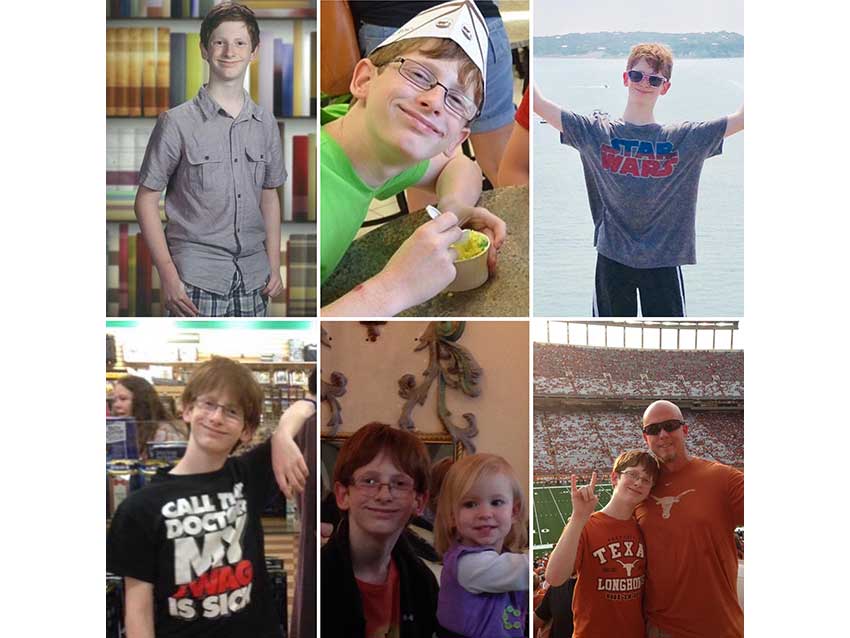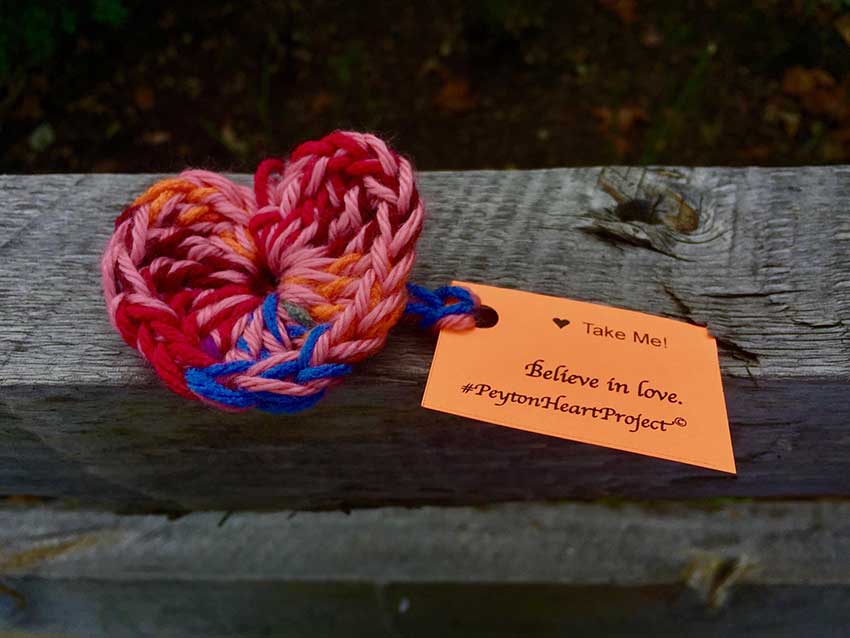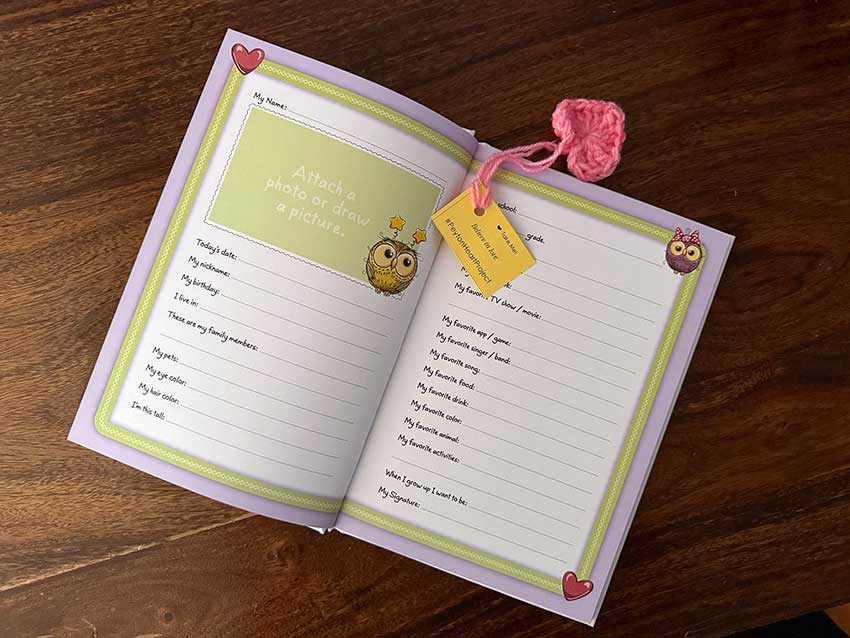Today is World Kindness Day, and this non-profit organization from Dripping Springs shows why kindness is so important – today and every day.

The Peyton Heart Project was created in June of 2015 after being inspired by several stories, including that of a 13-year-old boy named Peyton James who died by suicide in 2014. Peyton was a middle school student from Georgetown, Texas.
During Peyton’s young life he had experienced a tremendous amount of bullying by his peers. Many of us know far too well what the negative effects of bullying are on a child and how difficult it can be to believe that it will ever get better. Far too often bullying leads to depression, anxiety, and other mental health issues. Sometimes these issues can increase the likelihood of suicide.

The Peyton Heart Project's mission is to raise global awareness about suicide, bullying, and to help end the stigma surrounding mental health issues. They're doing this through distributing small, knitted and crocheted hearts with inspirational messages in locations where we hope they’ll be easily found. To date, they've scattered over 100,000 hearts all across the country and the world.
The delicate hearts, each one made by hand and each one representing the delicate heart of a life lost to suicide, have various inspiring quotes attached to them, along with our social media information. The hearts are placed in public places around the world for people to find during their everyday lives. Their hope is, that the hearts cause people to stop for a moment and reflect on a life lost to suicide, on bullying and on the fact that everyone’s life matters, while leaving people with a feeling that there is still good out there in the world.
If you'd like to join The Peyton Heart Project’s mission of kindness, you can request crocheted hearts on their website and help spread the message by sharing or placing the hearts wherever you go. Here are some ideas:
- Place hearts in community centers, libraries, or local events where people naturally gather.
- Bookstores and Libraries: Place hearts in between pages of books related to mental health, self-help, or kindness, so readers discover them as they browse.
- Local Businesses and Shops: Ask local businesses, coffee shops, and boutiques if they would place hearts by their registers or bulletin boards to reach people in a casual setting.
- School Partnerships: Work with schools to hand out hearts during anti-bullying and mental health awareness events. Students can attach them to backpacks or share them with friends, spreading awareness among their peers.
- Sprinkling hearts on everyone’s locker in a school.
- Make your own hearts with friends and family, at scout meetings, at school, etc. Patterns for crocheting, knitting, and other ways are available on the organization's website.
- Get a My Friends and I friendship book and encourage your child to invite all their friends, classmates, and especially the quiet, shy kids and those who may be bullied, to sign their book as a way of showing care and friendship. Each time they pass the book to a friend, use a heart to mark the pages you want them to fill out, and let them know the heart is theirs to keep. Plus, 20% of your purchase will go directly to The Peyton Heart Project. Go to Life Is Better With Friends and use promo code HEARTS at checkout.

If your child is being bullied
… talk to them.
Listen to David James' interview, where he shares the story of losing his son Peyton to suicide and the journey that followed.
One thing he said that stayed with me was: "Most people who take their own lives don't want to die. But they don't know any other way. They just want the pain to go away."
When asked about warning signs and what parents can do if they suspect that their child might be contemplating suicide, David said, “If you see changes in your child's daily routine or their behavior, talk to them. Be blunt, ask them, ‘Are you thinking about suicide, are you thinking about killing yourself?’ It’s very hard for someone to say, ‘Yes, I want to kill myself.’ But, if you open that conversation and you allow them to, that can make such a world of difference, because they realize that you care.”
If your child is the bully
… talk to them.
If you learn that your child is bullying others, start by calmly talking with them to understand what’s behind this behavior. Approach the conversation without judgment to create a safe space for honesty. Ask questions to uncover any unmet emotional needs, self-esteem issues, or social pressures they might be feeling. Encourage them to think about how their actions affect others and discuss kinder ways to handle tough social situations.
Work with their teachers or counselors to set up a support plan. Consistent consequences, participation in programs for emotional regulation, and engaging in positive activities can help redirect their behavior. By addressing the root causes and encouraging empathy, you can guide your child toward building respectful, healthy relationships.
Get the Scoop
Like reading our blog? Get our blog posts delivered via email and follow us on Facebook!